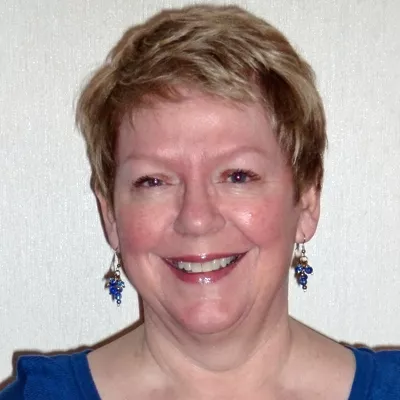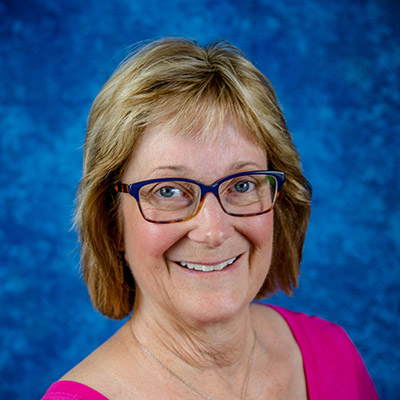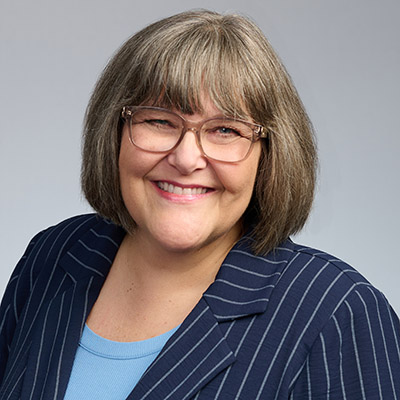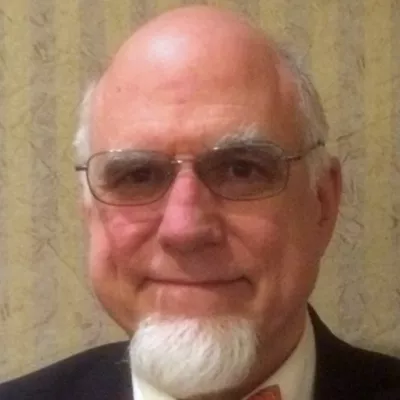Many families have stories about relatives who disappeared. Typically, these relatives left their homes and immigrated to another country, but somewhere along the line they seemed to vanish. Although apparent disappearances can be caused by holes in the historical records, assumptions made by genealogical researchers are often the cause. Consequently, a research approach focused on recognizing and challenging these assumptions can lead to positive results. Specific examples in this presentation are taken primarily from an article series about disappearing Swedes being published in the Swedish American Genealogist, but the principles apply to all immigrant groups.
Presented live at the Family History Library in Salt Lake City as part of the Joy Reisinger Memorial Lecture Series, and sponsored by the Board for Certification of Genealogists.

Already a member? Log in









You should receive a confirmation email with a link to the webinar soon.
You’ll also receive a reminder both the day before and one hour before the webinar begins.
Didn’t receive a confirmation email?
You successfully registered for %s.
You should receive a confirmation email with a link to the webinar soon.
You’ll also receive a reminder both the day before and one hour before the webinar begins.
Didn’t receive a confirmation email?
To ensure a smooth, high-quality webinar experience, check the quality of your internet connection.
On the day of the webinar, connect 30–40 minutes before and turn off any background software. If you can’t tune in live, you can view the recording later in the Webinar Library. If joining via a mobile device, be sure to first install the free GoTo app.
Questions? Contact us or read our FAQ.
It looks like you’re already registered for this webinar
You can register for another webinar.
Didn’t receive a confirmation email?
It looks like you’re already registered for these webinars
You can register for another webinar.
Didn’t receive a confirmation email?
Something happened on our end, sorry about that
We were unable to complete your registration.
Please try again later.



 Syllabus
Syllabus
Great reminder & examples of not making assumptions
Actually a 4 ½ because she left some items hanging. Did very much enjoy this webinar. When I am teaching or mentoring, I suggest they write down their ‘presumptions’ and label them AND provide other presumptions and research all of them to the answer.
Although I don’t have any Scandinavian ancestors, I found the research techniques very helpful. Thank you
Although I have no Swedish research, the basic principle to challenge assumptions is one every researcher should pay attention to. Nicely presented.
Although my family is not Swedish, this gave me some ideas for tackling a missing great-great-grandfather from Germany.
Applicable to all immigrants, even those of us not researching Swedish immigrants!
Assumptions have led me on many wrong paths. Thank you!
Believe it or not, this has given me some much needed direction within my own Swedish searches/research.
Built nicely off of ESM’s talk. Exhaustive research and not making assumptions to mislead yourself.
Covered a lot of information I didn’t already know.
Did not realize it was focused on Swedish immigrants, but still excellent information and points.
Easy to follow and understand the research techniques, even without Swedish ancestry.
Enjoyed listening to Martha for the first time. Very easy to understand her processes. Even though attendees may not have Sweden ancestors, you can always use some of the same techniques / methodology that a speaker provides. Nice presentation!
Enjoyed Martha’s presentation. Learned a lot about assumptions and Swedish customs.
Even though my known ancestors were not from Sweden, her information is a template for finding all sorts of disappearances of people from records.
excellent approach to brick walls
Excellent helpful hints!
excellent presentation
Excellent presentation & handout
Excellent presentation with ideas that will help us all even if we are not Swedish. Thanks!
Excellent reinforcement of the process.
Excellent strategies! Thanks!
excellent syllabus, excellent slides, well-organized, easily followed and I have no experience with Swedish research. The presentation will be useful for me though in its methodology,
Excellent! Although I am unaware of personal Swedish ancestry, I found methods and processes presented in this webinar that can be helpful in my research. Thanks!
Excellent! I love how Martha talked about Swedish research in a way that taught principles that can be applied to other areas of research! Thank you!
Excellent, focused presentation
Fantastic webinar giving me lots of ideas for reviewing my previous and current brick walls.
Fascinating and informational. Must view again!
Fascinating research
Good ideas for researching
good information about challenging assumptions to get rid of brick walls
Good information!
Great concept that I had not thought to bring to the fore front of my analysis.
great examples!
great facts and advice
Great ideas and shows once again that not everything is online and assumptions are not always correct.
Great ideas for out of the box thinking
great information about the assumptions and examples of how immigrants didn’t always do the usual things
Great information that I believe can be applied to researching even non- Swedish ancestors. Thank you.
Great information, even for those of us without Swedish ancestors
Great presentation. Gave much food for thought.
Great session
Have no specific interest in Swedish records, but ethnic practices interesting.
I don’t have Swedish ancestors but this was very informative.
I enjoyed Martha’s webinar about assumptions — would have preferred more in-depth examples of the research process.
I enjoyed the two webinars on Exhaustive Searches and Disappearing Immigrants.
I have no Swedish ancestors (that I know of), but still enjoyed the seminar.
I learned some valuable tips regarding NOT making assumptions and searching way outside the box from Martha’s lecture. It was eye-opening to hear how often Swedes were allowed to change their names.
I learned some very valuable things the one I really appreciated was becoming aware of your assumptions in your research. Thank you.
I loved Martha, which may be because I do Swedish research, but she definitely taught me a few new things.
I stride for the best genealogy standards I can.
I teach family history online. I am constantly telling students not to assume facts. I really like the speaker’s unstructured approach and even more her structured approach of exceptions to our assumptions. Excellent!
I wish there had been more information about HOW records were found, rather than just showing the pitfalls of assumptions.
Interesting and intelligent presentation. A critical reminder for all of us, in all of our research!
Interesting approach to considering assumptions.
Interesting ideas
Interesting subject
Interesting to know about Swedish. I have been told my name (Tussey) was a variation of the Swedish name Thorrsson. I just have not been able to make a connection.
Interesting traditions – changing names.
It gave me confidence to keep looking for the people in ways I had not considered before.
It gave me many more ideas on how to search or other possibilities
It was a good reminder of the assumptions we make when searching with strategies for overcoming them.
It was a good webinar, I’m just at a different level.
It was really interesting. I believe her findings will help my search
It was very helpful and a great way to think about my research approach! I can see where this applies not only with immigrants but with our research overall. I was a little confused since I had not worked on Swedish immigrants however, I see that there is a lot of resources and again, the research was a good example of the
overall premise about assumptions.
It’s a great idea to consider exceptions to the rule when you’re looking for a missing person. I would have appreciated more details in the scenarios that the speaker presented so we could see the extent she went to in order to get her answers. For example, the person who was thought to have been buried in Manhattan–how did she ultimately discover that the body was shipped back to Sweden? Was this a highly unusual event for the time period? Her stories were summed up a bit too easily.
Learned a lot about Swedish naming patterns.
Lots of information new to me as I have not undertaken Swedish research yet
Martha Garrett made a lasting impact on me with her main point—that our own un-examined assumptions often create our genealogy brick walls. I didn’t need the examples to be convinced of her main point but I’ll try transferring some of the insights to immigrants from other countries.
Not enough information on how she found out the right information after eliminating assumptions.
Only giving it a 4 because all the examples were from Sweden. Maybe having some examples from other countries would be an improvement (for me anyway).
Outstanding!
Practical and informative lecture. And appreciate the handout that contains so much information.
Reasonably Exhaustive Research was informative and inspiring on the importance of details and research and keeping good notes!
Recognizing and Challenging Assumptions was very good! Thank you Martha Garret
She stressed an important point that we should not allow ourselves to fall into the assumptions hole, but to remain open-minded.
She was articulate, well prepared, had great examples to show and gave great ideas to pursue those brick walls.
She’s a really good speaker, and her warning about assumptions (and taking others’ statements too literally) applies to everything I’ve studied seriously in life, namely: troubleshooting computer problems, genealogy, and groups of people who can’t get along.
Some useful ideas, even though I have no Swedish ancestors. Title could have been a bit more specific.
Speaker made good points about assumptions; some of the Swedish names were hard to follow.
Suggests true out-of-the-box thinking. Excellent.
That was an excellent reminder to put assumptions and unverified facts to the side when doing research. They can be useful as a starting point for verification, but being able to put them aside and back up a step is a useful habit to get into.
The Thought Cloud image was excellent. As a user of ‘Mind Maps’ it was very helpful.
The emphasis on identifying assumptions and challenging them was the key point I took away frim this presentation.
The presenter is very knowledgeable and communicated many important points about searching for specific records in Sweden, the U.S., and elsewhere.
very clear and well thought out presentation … showing how our research brick walls can be solved … good examples – often obvious things … but we sometimes forget … very interesting learning about Swedish records and immigration.
Very good information
very good. Provided some ideas on how to approach finding my missing Swiss immigrants.
Very helpful to confront assumptions.
Very helpful. I plan to use this immediately to find my lost relative.
very informative
Very informative about way to challenge assumptions that can get you past brick walls.
Very interesting
Very interesting – especially variety of examples
Very interesting and informative.
Very interesting!
Very interesting. Lots of things to consider if a person of interest has disappeared!
very specific to Swedes
very useful tools
Very well done!
Very well done. I don’t do Swedish research, but it can apply anywhere.
Well presented and a lot of great ideas to trace my Johnson’s and Olson’s
While I have no Swedish ancestors, this approach is valuable to any research.
While the initial part reminded us to identify and discard assumptions that block creative research, this webinar would likely have greater appeal to persons looking for persons from Scandinavia in general and Sweden in particular.
Wonderful! I need to listen again. Thank you!
Would have liked more strategies.
Would liked to have learned how she discovered the gentleman who died in NY had his body returned to Sweden.
Wow – another great talk. Once I have finished the basics for researching my family (still working on the low hanging fruit), I am looking forward to taking out a subscription for these webinars so I can get deeper into my research and break through a couple of brick walls that I have.
yes, very applicable to wider contexts!